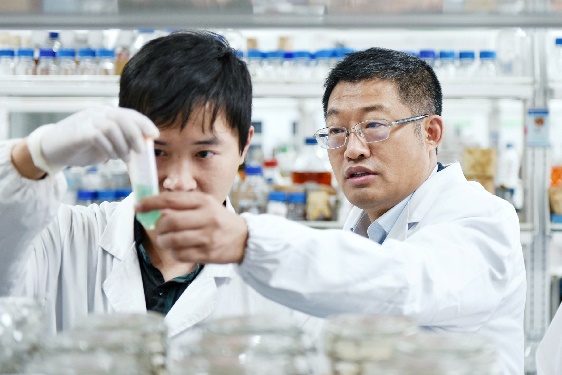May 29th, the International Intestinal Health Day, Academician Chen Wei appealed everyone to pay attention to intestinal health!
"The intestine is the second brain of the human body, and its health status is closely related to human health." Professor Chen Wei, Academician of the Chinese Academy of Engineering and the president of Jiangnan University, told our reporter during an interview.

In recent years, intestinal health has received increasing attention, and the upsurge of intestinal microbiology research has also promoted the development of probiotic research. As a fan of academician Chen Wei in the field of probiotics, the editor admires that he always pays attention to the intestinal microbes of the Chinese population, studies the relationship between intestinal microbes and diet, region, lifestyle, etc., and clarifies the relationship between intestinal microflora and special diseases. Based on the development of targeted dietary adjustment strategies, he is also committed to the development of probiotics for the Chinese population and promoting the industrialization of probiotics.


On this special day, we would like to pay tribute to the guardians of Chinese intestinal health represented by Professor Chen Wei, thank you for writing on the land of China with fruitful results, and look forward to your continued escort to the Chinese intestinal health!
Does everyone know enough about our intestines? The little secret of the "Mr. gut" is revealed right now:

" May 29th , the International Intestinal Health Day"
In 1958, Dr. Henry Cohen, founder of the World Gastroenterology Organization (WGO), proposed to set May 29th as the "World Intestinal Health Day" in order to raise public awareness of intestinal health. Thus, how much do you know about your " Mr. gut "?
About " Mr. gut "
The intestine refers to the digestive tract from the pylorus of the stomach to the anus. The intestine is the longest section of the digestive tract and the most important section of function. The human intestine is about 7-8 meters long and is divided into three parts: small intestine, large intestine and rectum.
Duties of " Mr. gut "
"Top leader" of digestion and absorption: The longest section of the digestive system is also the most important section of the function. All imported food must be transported to the intestinal system for nutritional processing and screening. In one person's whole life, the intestine must process up to 65 tons of food, which is equivalent to the weight of 12 elephants.
"Guardian" of Human health: The intestine is the largest immune system in the human body. There are lymphoid tissues where there are mucous membranes. 60% to 70% of the lymphoid tissues in the human body are distributed in the intestine, where gathers most of the body's immune cells, which fighting against the invading bacteria and viruses successively.
"Regulator" of Mental disease: millions of neurons are also distributed in our intestines, and these neurons and complex intestinal flora connect the intestine with the brain, forming a "brain-gut axis system", The complex nervous system in the intestine is also called the "second brain" of the human body, which is closely related to our emotions and thinking abilities. Therefore, maintaining intestinal health has a corresponding regulating effect on a series of mental diseases such as depression and anxiety.
The capabilities of "gut guy" are far more than that...

Gut and health?
Intestinal health can be described as a “wind vane” for human health. Once intestinal problems occur, it will affect the systemic immune system disorders, leading to a series of health problems. Diarrhea, bloating, and constipation, the common intestinal health problems, will become a chronic disease and will have a serious impact on healthy life if can't solve in time. In addition, colorectal cancer ranks fifth in the incidence of all tumors in our country. The average age of onset is 58 years, which is 12-18 years ahead of occident. Hence, it has become an important threat to human health.
Probiotics boost intestinal health
The structure of intestinal flora is closely related to intestinal health. Once the intestinal flora is disordered, it is easy to cause immune, metabolic and even nervous system abnormalities. Probiotics and their metabolized chemicals can regulate the structural composition of intestinal flora, inhibit harmful bacteria and maintain the number of normal flora. Therefore, regulating the amount of probiotics in the human intestine plays an important role in maintaining intestinal health.
Although there is only one day for intestinal health day, the awareness of protecting intestinal health needs to be raised for every single day, to wake up everyone's attention to gastrointestinal health and enjoy a better life!
The editor will also continue to bring you more latest reports on intestinal health, love the intestines, love health!